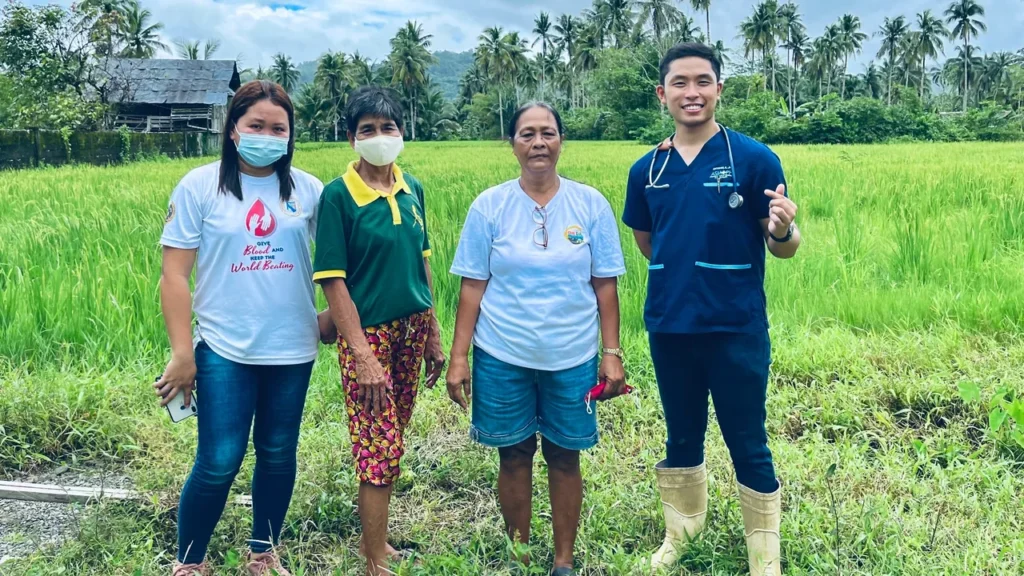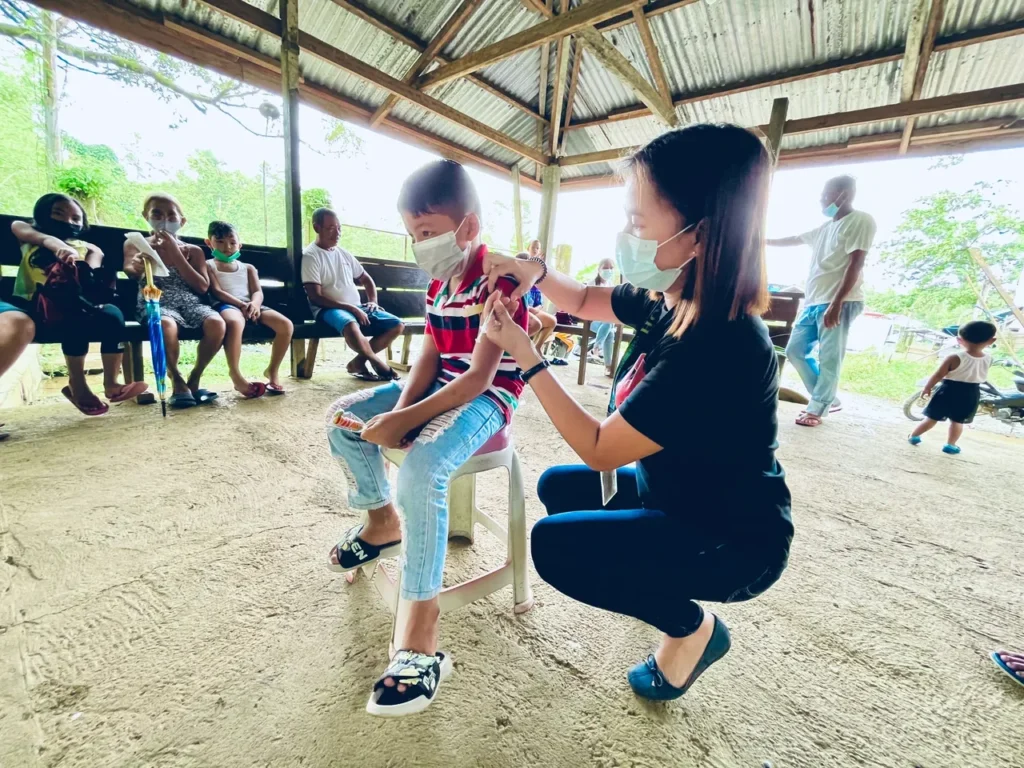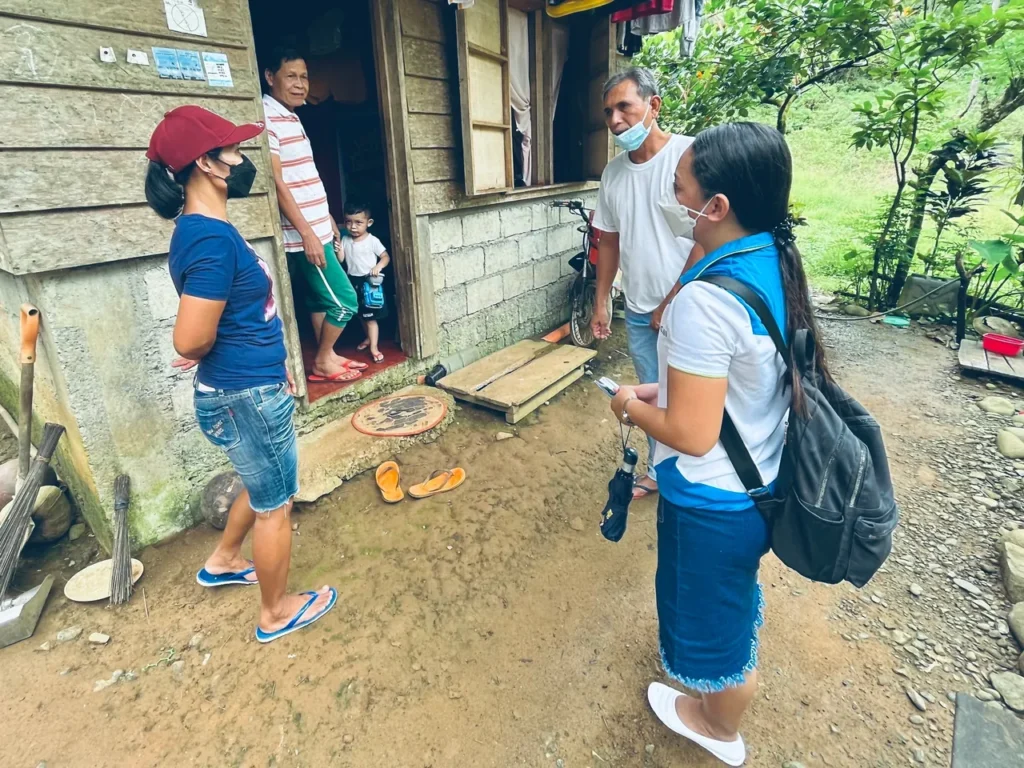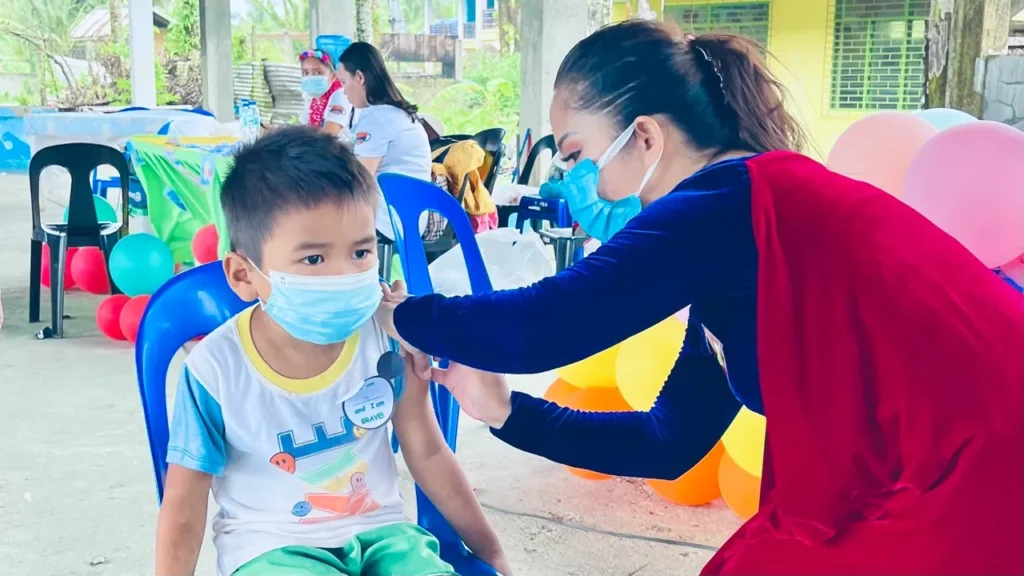Vaccine Champion from Lanuza: Tales from a Doctor to the Barrio
Share this post:

A community partner of CareGo EMR in ensuring Filipinos are safe and healthy, Dr. Alberto Antonio from Lanuza Rural Health Unit (RHU), has shared with us some of his experiences as a Municipal Health Officer (MHO) in Lanuza, Surigao del Sur. Serving as a medical intern and junior intern for 2 years in The Medical City and Ospital ng Makati, Dr. Antonio then continued to serve the community of Lanuza.
What does an ordinary day look like?
Dr. Antonio: “While the pandemic has certainly changed MHO work indefinitely, the COVID-19 vaccination has also taken much of an ordinary day. At the start of the day, COVID-19 cases have to be updated where I do my rounds on our cases, how they are doing, will they be discharged, will they need referral, etc. After which, I proceed to our vaccination site in our municipal gym to conduct medical screenings on hundreds of interested vaccinees, lead in the post-monitoring area where we observe our vaccinees post-inoculation, and manage the whole vaccine site and troubleshoot for any problems.
Then in the afternoon when there are less people in the vaccine site, I proceed to my clinic and conduct my regular consultations and perform tests. I also place here any work-related meetings and travels that need to be done.
Anytime during the day, when emergency situations arise, mostly of COVID-19 severe cases, I also have to be on top of things to make sure our patients are properly managed and referred.”

How can you compare the healthcare situation in Lanuza compared to what we have in Metro Manila?
Dr. Antonio: “One stark difference between Lanuza and Metro Manila is that the people here in the community level are more reactive than preventive in terms of health perception. Generally, the people here only seek consults when their conditions have already progressed and in need of immediate medical attention, i.e., hypertension, hyperglycemia, etc. However, our preventive medicine programs, such as disease screening, lifestyle modifications, deworming, vitamin supplementation, and even vaccinations, are not as well received as it is in Metro Manila. Their common reasons for these behaviors include that they just simply have no time for this because they need to work. This especially puts to a disadvantage all our efforts to even go as far as delivering our services to their households. Preventive medicine being just as important (and cheaper alternative I might add) as going to a doctor when sick is what the people here in Lanuza need to understand, especially in this time of pandemic where our COVID-19 cases remain high and our vaccination rate remains poor.”
What are your challenges in making sure community members are protected and safe?
Dr. Antonio: “I realize that the lack of cooperation of the community members on health-related projects stems from distrust of the healthcare system. To a certain extent, I find this totally understandable because for decades, they have only become victims to this unjust health system, where out-of-pocket expenditures remain prevalent, and maybe somewhere along the way, they had a traumatic experience maneuvering in the healthcare setting such as in hospitals or even rural health units.
So for me, one of the greatest challenges that I encounter is convincing my patients that we mean no harm, that we only intend what is good for them, and that all our efforts are only for the betterment of their quality of life. But once overcome, I am sure the trust will yield better health reception that will lead to a more protected and safe community.
How do you overcome those challenges?
Dr. Antonio: “One of the key aspects of being a doctor, as I have learned in medical school, is to be a teacher first and foremost. To foster that trust from my patients, I really take the time to explain full well anything medicine related. In every consult, for example, I happen to whip out a pen and paper and make all sorts of drawings just to describe the pathological event that has led to the patient seeking consultation, and I try to educate what led to this. Only after careful explanation can my patient and I construct a plausible action plan that the patient will adhere to. Now, zooming out to the community-wide, I make it a point to continuously go around the 13 barangays of Lanuza in order to talk with barangay leaders, health workers, and other key members, to discuss how they are doing in terms of health. I teach them about the different diseases endemic in their places, hoping that I can also make plausible action plans with them that they will adhere to.
Not only will teaching over and over again guarantee that our projects are being delivered and received well, this will also foster trust amongst the community people and their healthcare professionals which will benefit our future health programs and policies.”

Who/what helped you overcome difficulties in your work?
Dr. Antonio: “When I started being the MHO of Lanuza, I was clueless. I had to understand what was happening, learn the ropes, even though the learning curve was incredibly steep. I had to make budgets and programs immediately, make tough administrative and managerial decisions on the spot, all the while being a freshly-minted doctor in my first year of service. Naturally, I had to ask help from my workmates.
Seven months later, it is truly with the help of my nurses, midwives, utility workers, job orders, barangay health workers, and even of my patients, where I have come to understand the nature of my work. While there is still much to learn, (I mean even the nature of medicine in itself is a lifelong learning), I can be sure that I will get by with the help of these healthcare workers from Lanuza of whom I owe my life.”
Can you share with us how you deliver healthcare and vaccination services to your community?
Dr. Antonio: “Crucial to the delivery of our services are our nurses and midwives. They are assigned to each barangay, acting as the doctor there, performing prenatal services, disease surveillance, and regular immunizations to name a few. For the immunizations to be exact, our nurses and midwives regularly go to their assigned barangays and, with the help of barangay health workers, go house to house in order to track down children and provide immunizations at their doorsteps. Of course, education before and after the immunization is key because commonly, parents are afraid of the side effects encountered by their children.”
As a vaccine champion, what is your message to your community, the government, aspiring doctors, and the Filipino people?

Dr. Antonio: “Vaccines give our children a chance at a better quality of life. When we invest on preventive and safe measures such as vaccines, we are forgoing expensive hospital bills in the future, reducing chances of transmission to other people, and preventing the medical, social, psychological trauma of a completely preventable disease.
